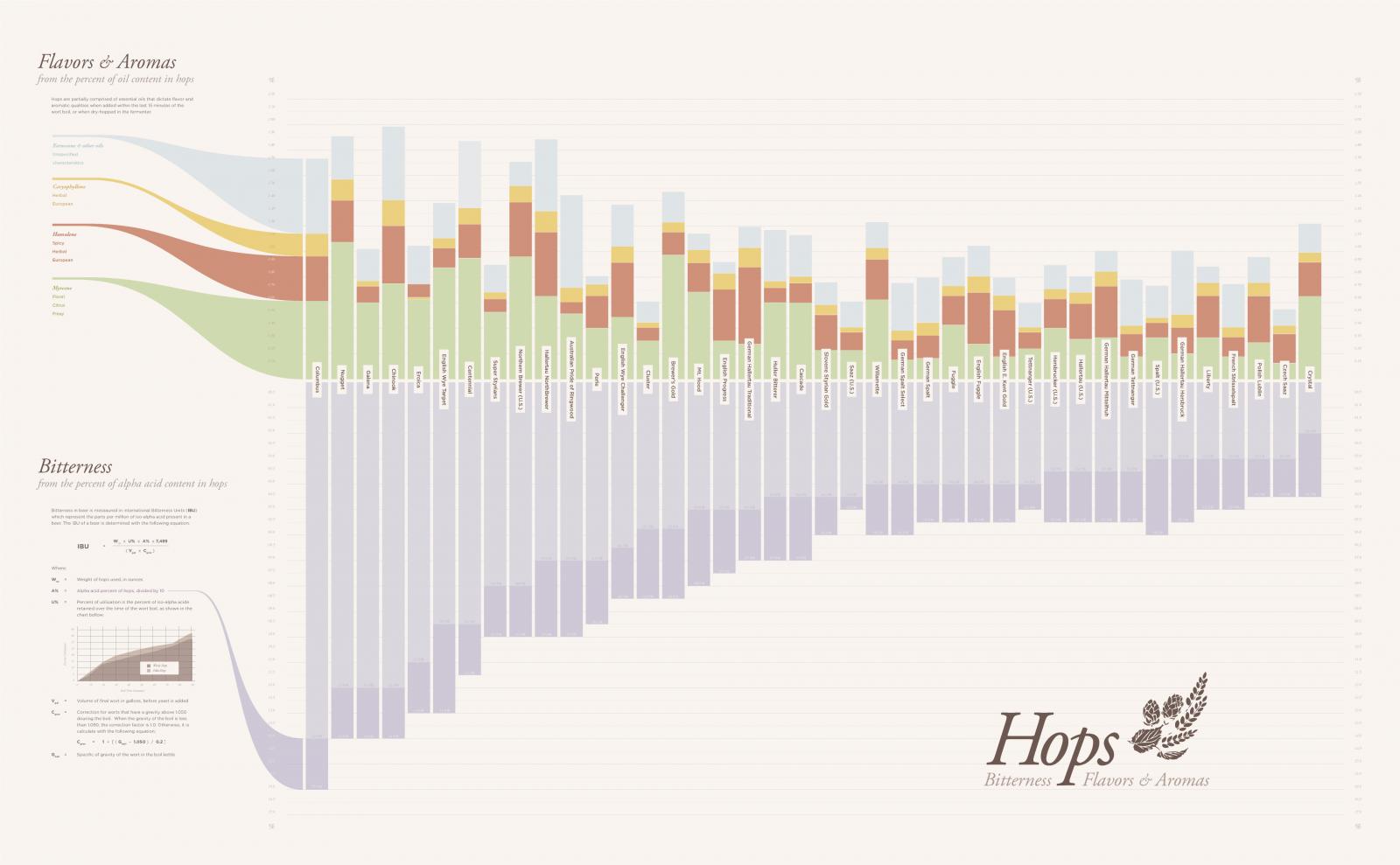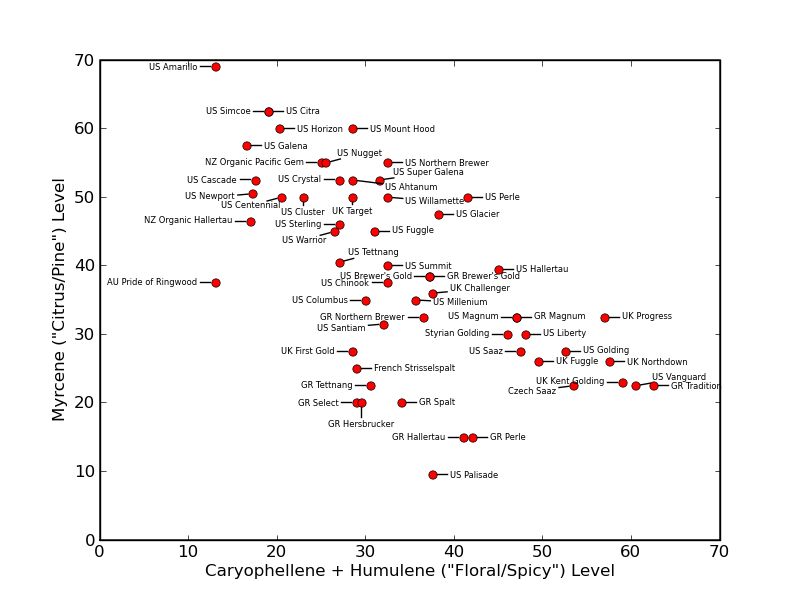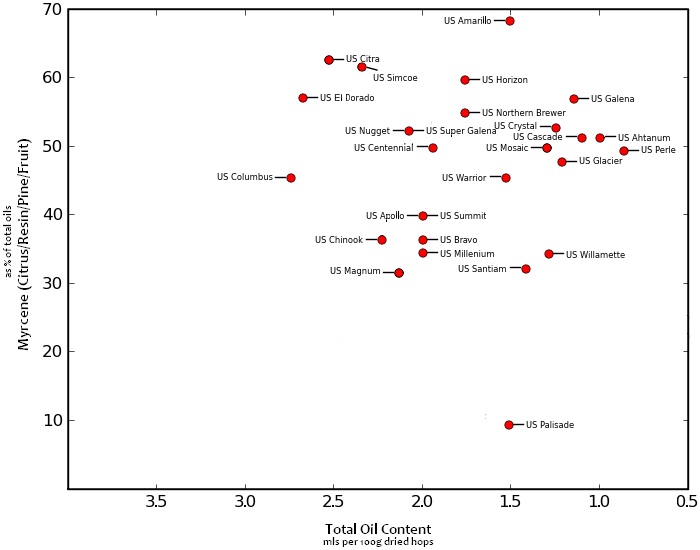Can anyone point me to an exhaustive hop guide that will help me master the groups and appropriate uses of all types of hops? Not a chart or list, but a real guide, something that could be stickied here maybe? Thanks, Zeb
You are using an out of date browser. It may not display this or other websites correctly.
You should upgrade or use an alternative browser.
You should upgrade or use an alternative browser.
Hop Choices And Combinations By Style
- Thread starter Zebulon
- Start date

Help Support Homebrew Talk - Beer, Wine, Mead, & Cider Brewing Discussion Forum:
This site may earn a commission from merchant affiliate
links, including eBay, Amazon, and others.
sandyeggoxj
Well-Known Member
I haven't seen the perfect resource but the hops book will help you understand a lot about hops and then you can look at varietal data on site like hopunion.com.
ArkotRamathorn
Well-Known Member
- Joined
- May 1, 2013
- Messages
- 1,302
- Reaction score
- 317
The recipe database is a great place to look as well and you could see what other people seem to use most often in certain styles.
mrdail87
Well-Known Member
- Joined
- Jun 11, 2014
- Messages
- 261
- Reaction score
- 33
Yeah, as giraffe says, hop union and other hop manufacturers will often suggest styles for certain hops, but it's really based more on popularity than anything else.
A good place to start though is if you're brewing a beer associated with a certain country, start with hops native to that country. I.e. use American hops for an American IPA, use English hops for an ESB, but even that rule can be bent if the hop fits the bill.
A good place to start though is if you're brewing a beer associated with a certain country, start with hops native to that country. I.e. use American hops for an American IPA, use English hops for an ESB, but even that rule can be bent if the hop fits the bill.
fivepointslow
Well-Known Member
- Joined
- Aug 30, 2014
- Messages
- 165
- Reaction score
- 28
Where is that pie chart looking thing? It was made up of different flavors given off by hops and had hop names all over it depending on each hops flavor.
I want a scratch & sniff hops poster...
mrdail87
Well-Known Member
- Joined
- Jun 11, 2014
- Messages
- 261
- Reaction score
- 33
Where is that pie chart looking thing? It was made up of different flavors given off by hops and had hop names all over it depending on each hops flavor.
This one?
http://www.basinbrewers.org/images/HopsWheelKreitzsm.jpg
OP, there are hundreds of hop varietals. I assume you are inquiring because you wish to dabble in brewing hoppy American ales like APAs or IPAs. Hops typically used for these styles are usually some combination of:
*Fruity (Stone Fruits)
*Citrusy
*Floral
*Piney/Dank/Marijuana/Resiny
*Tropical Fruits
*Earthy/Woodsy/Minty
*Spicy/Herbal
Some of the most popular American APA/IPA hops are:
*Ahtanum
*Amarillo
*Apollo
*Cascade
*Centennial
*Chinook
*Citra
*Columbus
*El Dorado
*Glacier
*Horizon
*Palisade
*Magnum
*Mosaic
*Nugget
*Simcoe
*Summit
*Warrior
^Special consideration for bolded choices.
I've also included a few graphs/charts:



*Fruity (Stone Fruits)
*Citrusy
*Floral
*Piney/Dank/Marijuana/Resiny
*Tropical Fruits
*Earthy/Woodsy/Minty
*Spicy/Herbal
Some of the most popular American APA/IPA hops are:
*Ahtanum
*Amarillo
*Apollo
*Cascade
*Centennial
*Chinook
*Citra
*Columbus
*El Dorado
*Glacier
*Horizon
*Palisade
*Magnum
*Mosaic
*Nugget
*Simcoe
*Summit
*Warrior
^Special consideration for bolded choices.
I've also included a few graphs/charts:



chickypad
lupulin shift victim
"Appropriate" use is also highly subjective. New varieties are always being bred, and both professionals and homebrewers continue to explore non-traditional combos/uses of older varieties. Any exhaustive list would be quickly out of date. I don't think there are any shortcuts to really master something like this. Reading up on descriptions of different hops, drinking beers with lots of different examples, and experimenting on your own is probably the way to go.


Thanks for the responses. For a little back story, I'm not exactly fresh off the boat here. I've been writing my own recipes for over five years now, but started out like anyone else copying and modifying recipes for an earlier six years. I've got a fair understanding of what hops are usually used in certain types of beer, plus my own trial and error. I've played with combinations, trendy varieties, a wide variety of beer styles, and I've had fantastic success.
But it's been an exhausting process. I look at the ever-growing list of hops and still feel overwhelmed. My goal in brewing these days is to attain some level of flavor mastery, and while yeasts and malts seem doable, the vastness of hops is frankly intimidating.
If a print book is what I need next, I will purchase it. Would you recommend one of these titles, or another?
But it's been an exhausting process. I look at the ever-growing list of hops and still feel overwhelmed. My goal in brewing these days is to attain some level of flavor mastery, and while yeasts and malts seem doable, the vastness of hops is frankly intimidating.
If a print book is what I need next, I will purchase it. Would you recommend one of these titles, or another?
- For The Love of Hops by Stan Hieronymus
- Hop Variety Handbook by Dan Woodske
sandyeggoxj
Well-Known Member
The first one by Stan is great. I am reading it now and I have learned a ton.
mrdail87
Well-Known Member
- Joined
- Jun 11, 2014
- Messages
- 261
- Reaction score
- 33
How many single hop brews have you made? That's one of the best ways to really start identifying hop flavors.
I've only done a few single hop small batches myself, but I've always been somewhat surprised by the results. And always very happy with the flavor though.
You could try this out with some of the lesser known/used hop varieties if you're looking for "mystery", while isolating it's profile at the same time.
I've only done a few single hop small batches myself, but I've always been somewhat surprised by the results. And always very happy with the flavor though.
You could try this out with some of the lesser known/used hop varieties if you're looking for "mystery", while isolating it's profile at the same time.
Similar threads
- Replies
- 0
- Views
- 527
- Replies
- 1
- Views
- 915
- Replies
- 3
- Views
- 878

